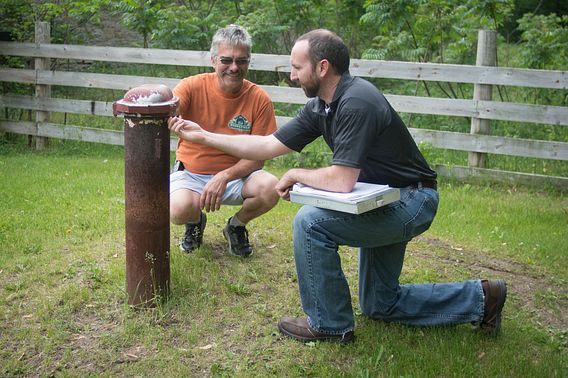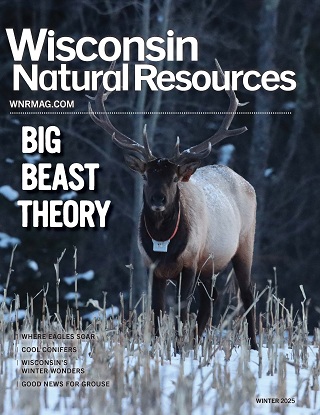Contact: McCrea Baker, DNR Acting Groundwater Section Manager
McCrea.Baker@wisconsin.gov or 608-220-6987
Groundwater Awareness Week Is March 10-16
DNR Highlights Importance Of Protecting Groundwater
 Groundwater is a vital resource in Wisconsin, with approximately 70% of Wisconsinites relying on groundwater as their primary source of drinking water.
Photo credit: Wisconsin DNR
Groundwater is a vital resource in Wisconsin, with approximately 70% of Wisconsinites relying on groundwater as their primary source of drinking water.
Photo credit: Wisconsin DNR
MADISON, Wis. – The Wisconsin Department of Natural Resources (DNR) is celebrating Groundwater Awareness Week March 10-16, 2024.
Groundwater is a vital resource in Wisconsin, with approximately 70% of Wisconsinites relying on groundwater as their primary source of drinking water. Wisconsin’s groundwater also plays a critical role in supporting the state’s agricultural and tourism economy – irrigating crops, watering cattle, processing various foods, or feeding trout streams and spring-fed lakes.
“For many Wisconsinites, groundwater is crucial for providing safe drinking water, as well as serving agricultural and industrial needs in our state. Increasing awareness of our groundwater will help conserve one of our most valuable resources for current and future generations,” said McCrea Baker, acting Groundwater Section Manager for the DNR's Drinking Water and Groundwater program.
Wisconsinites can do their part by taking action in their own lives. Here are some ways that everyone can protect and conserve groundwater:
- Annual water well testing and well maintenance: Private well owners should test their well water at least once a year, tend to any maintenance needs, and treat their water if necessary.
- Recycle: Properly recycling paper, plastic, cardboard, glass, aluminum and other materials can help prevent potential groundwater contamination.
- Plant native plants: When landscaping, prioritize native plants. They look great and don’t need much water or fertilizer. When choosing grass, varieties adapted to Wisconsin’s climate can reduce the need for extensive watering or chemical applications.
- Use water wisely: Don’t let the water run unnecessarily, fix any leaks, take shorter showers, only run full loads of dishes or clothes, water the lawn and plants during the coolest part of the day and only when they need it, and obey any watering restrictions during dry periods.
Wisconsinites can also help protect groundwater by managing hazardous waste and reducing chemical use. Unused hazardous waste, like pharmaceuticals, pool chemicals and motor oil, are often improperly disposed of, resulting in the contamination of aquifers that provide drinking water.
Residents can take many hazardous waste products to community collection points to ensure proper treatment or disposal. Replacing products with less harmful alternatives, only buying what can be used entirely and checking what is already in your barn, garage or home can help eliminate the chances of groundwater contamination.
The department has resources readily available on the Household Hazardous Waste webpage, including a disposal guide and link to the U.S. EPA Safer Choice list for consumers and businesses.
To learn more, visit the DNR Groundwater webpage or the Groundwater Coordinating Council’s story map, Wisconsin’s Buried Treasure is Worth Protecting.
About Groundwater Awareness Week
Groundwater Awareness Week, first established in 1999, is an annual observance highlighting the responsible development, management and use of groundwater. It is also a way to promote professional opportunities in the groundwater industry.
The groundwater industry is made up of a variety of skilled professionals like well drillers, pump installers, hydrogeologists, groundwater policy advocates and groundwater technology manufacturers who help provide safe drinking water now and in the future.

